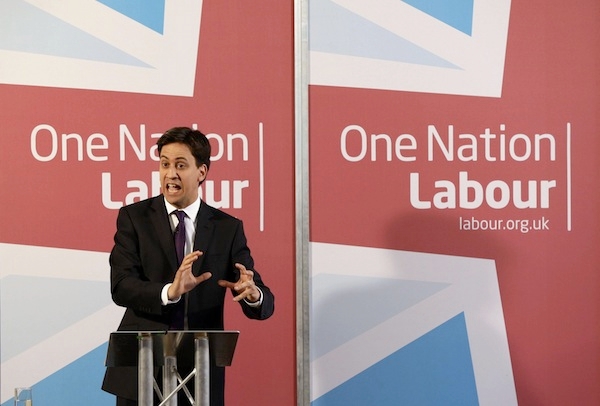There was a point in Ed Miliband’s speech on a ‘better politics’ where it became clear that for the rest of our lives we’re all going to be trapped in an endless cycle of opposition politicians announcing that they are going to forge a ‘new politics’, as though some other chap hadn’t said the same thing only a few years before. There really is nothing new under the sun.
But it would be unfair to dismiss the Labour leader’s speech as meaningless simply for saying what others have said before him: perhaps he was hoping that the goldfish bowl of the Westminster Village would turn out to contain a bunch of people with goldfish memories, too. His speech was in many ways impressive politically. He has spent the past week on the back foot over the Falkirk row, bouncing into decisions and marching largely to the tune of events and accusations from the Conservatives.
But Miliband managed to get back on the front foot by talking not just about what are very bold plans to reform the union link but also by announcing plans to change the rules on MPs’ second jobs. This means he isn’t just chasing after a mess in his own party, but also trying to put the other party leaders in a difficult position by leading on a reform too. Regardless of whether the second jobs idea is a good one (and as James points out, it’s just as well his brother has moved on to pastures new), announcing it in the speech was a clever bit of politics.
In the question and answer session after the speech, Miliband also pressed home the point that this was about principle because of the amount of money Labour stands to lose from these reforms. And he staked his reputation on their success, saying: ‘I definitely want these changes agreed before the general election.’ For the process to move quickly, he will probably need to agree the reforms with the union bosses, rather than go through a longer process of votes on the NEC, the organisational subcommittee and at conference as well.
McCluskey’s reaction was fortunately much more positive than we might have expected. He told BBC News:
‘Obviously we need to look at the details of this, but the vision that he has set forward, that this would attract literally tens of thousands of trade unionists into active participation in the Labour party is something that I would 100% support. Now let’s see the details.’
But he was clear in his interview on the World at One that this co-operation depends on the Labour leadership cracking down on the influence of other wings of the party too. He said:
‘I’m happy if Ed is serious about getting rid of machine politics, but not just Unite, it’s not just the finger of accusation at Unite: is he going to get rid of the New Labour machine and the Lord Sainsbury block vote in Progress that has effectively been used for years and years now to pack our constituencies with their candidates.’
So the new politics isn't going to be the calm politics any time soon.







Comments